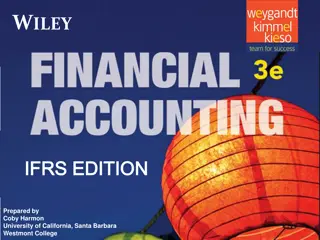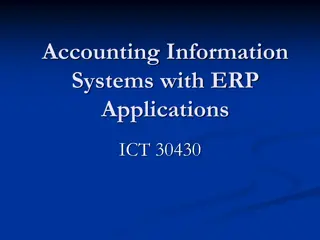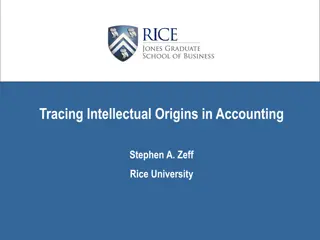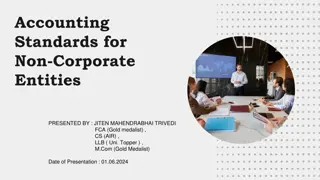
Share Capital, Issuance, and Ownership in Companies
Explore the various aspects of share capital, the issuance of shares, and the concept of ownership in companies. Learn about different types of shares, procedures for issuing shares, and the significance of ordinary shares in corporate structures. Gain insights into the legal definitions and characteristics of joint-stock companies.
Download Presentation

Please find below an Image/Link to download the presentation.
The content on the website is provided AS IS for your information and personal use only. It may not be sold, licensed, or shared on other websites without obtaining consent from the author. If you encounter any issues during the download, it is possible that the publisher has removed the file from their server.
You are allowed to download the files provided on this website for personal or commercial use, subject to the condition that they are used lawfully. All files are the property of their respective owners.
The content on the website is provided AS IS for your information and personal use only. It may not be sold, licensed, or shared on other websites without obtaining consent from the author.
E N D
Presentation Transcript
UNIT I SHARE CAPITAL
ISSUE OF SHARES TYPES OF SHARS FORFEITURE OF SHARES REISSUE OF SHARES UNDERWRITING OF SHARES STOCK SPILIT MEANING OF REDEMPTION REDEMPTION OF PREFERENCE SHARES.
DEFINITION : Lord Justice Lindley of England has defined joint-stock company as an association of many persons who contribute money or moneys worth to a common stock and employ it for a common purpose.
An Artificial Person: Separate Legal Existence: Legal Formation: Voluntary Perpetual Succession: Limited Liability: Large Capital: Transferability of Shares: Common Seal: An Artificial Person: Separate Legal Existence: Legal Formation: Voluntary Organisation Perpetual Succession: Limited Liability: Large Capital: Transferability of Shares: Common Seal: Organisation: :
MEANING OF SHARES: A part or portion of a larger amount which is divided among a number of people, or to which a number of people contribute is know as shares Shares are units of ownership interest in a corporation or financial asset that provide for an equal distribution in any profits, if any are declared, in the form of dividends. The two main types of shares are equity shares (common shares) and preferred shares.
Issue of Shares is the process in which companies allot new shares to shareholders. Shareholders can be either individuals or corporate. The company follows the rules prescribed by Companies Act 2013 while issuing the shares. THREE BASIC STEPS OF THE PROCEDURE OF ISSUING THE SHARES. Issue of Prospectus, Receiving Applications, Allotment of Shares (The process of creating new shares is known as Allocation or allotment. )
Most companies only have one kind of shares, called ordinary shares. Ordinary shares represent the company s basic voting rights and reflect the equity ownership of a company. Ordinary shares typically carry one vote per share and each share gives equal right to dividends. These shares also give right to the distribution of the company s assets in the event of winding-up or sale. The rights attached to ordinary shares are generally defined in the Articles of association of the company and/or in the shareholders agreement.
Preference shares give their holder a preferential right to a fixed amount of dividend, meaning that they will receive dividends ahead of ordinary shareholders. Preferred shareholders also have a higher priority claim to the company s assets in case of insolvency. Because this class of shares carries many benefits and guarantees, it is mostly issued to investors, for example to venture capitalists, who invest in startups. However, preferred shareholders do not have the same ownership rights in the company as ordinary shareholders; they are often non-voting and sometimes redeemable. Redeemable preference shares are a common way of financing a business. They allow a company to repurchase its shares in the future (eg if interest rates fall and the company wants to issue new shares with a lower dividend rate), while giving investors the possibility to get their money back at a pre-agreed price.
CUMULATIVE PREFERENCE SHARES NON-CUMULATIVE PREFERENCE SHARES REDEEMABLE PREFERENCE SHARES PARTICIPTING OR NON- PARTICIPATING PREFERENCE SHARES
Deferred shares carry fewer rights than ordinary shares and can include: shares in which dividends are only paid after all other classes of shares have been paid shares in which dividends are only paid after a certain date or event shares that are not tradable until a certain date - such shares are usually issued to employees in order to give them a long term interest in the company and to increase their loyalty, or shares which, in the event of insolvency, do not give their holders any rights until all other shareholders are paid.
Registered, Issued Capital: Unissued Capital: Subscribed Capital: Called up Capital: Uncalled up Capital: Paid up capital: Reserve capital or Reserve liability Fixed Capital: Circulating Capital: Registered, Authorised Issued Capital: Unissued Capital: Subscribed Capital: Called up Capital: Uncalled up Capital: Paid up capital: Reserve capital or Reserve liability Fixed Capital: Circulating Capital: Authorised or Nominal Capital: or Nominal Capital:






















